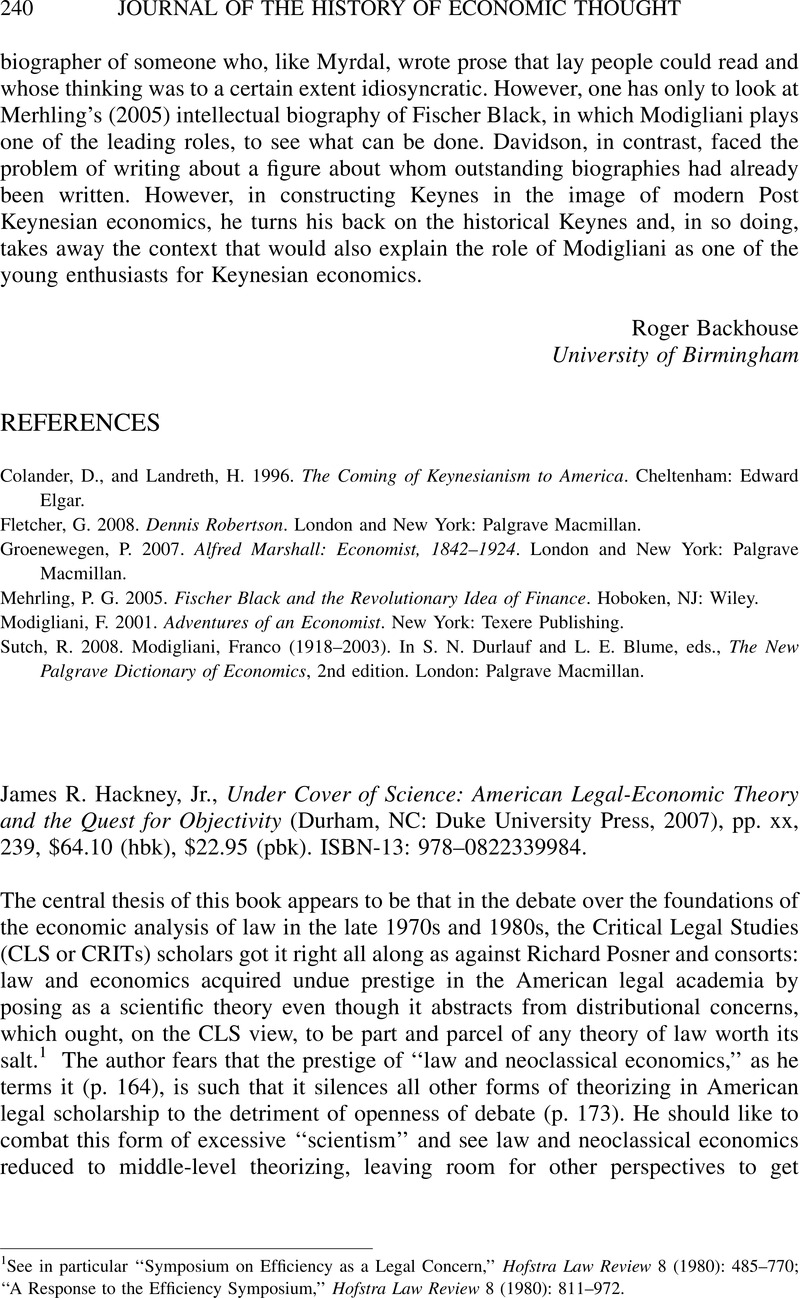No CrossRef data available.
Published online by Cambridge University Press: 01 June 2009

1 See in particular “Symposium on Efficiency as a Legal Concern,” Hofstra Law Review 8 (1980): 485–770; “A Response to the Efficiency Symposium,” Hofstra Law Review 8 (1980): 811–972.
2 James R. Hackney, Jr, “The Intellectual Origins of American Strict Products Liability: A Case Study in American Pragmatic Instrumentalism,” American Journal of Legal History 39 (1995): 443–509; “Law and Neoclassical Economics: Science, Politics, and the Reconfiguration of American Tort Law Theory,” Law and History Review 15 (1997): 275–322; “Law and Neoclassical Economics: A Reply to Commentaries,” Law and History Review 16 (1997): 163–171; “The ‘End' of: Science, Philosophy, and Legal Theory,” University of Miami Law Review 57 (2003): 629–648; “Law and Neoclassical Economics Theory: A Critical History of the Distribution/Efficiency Debate,” Journal of Socio-Economics 32 (2003): 361–390; “The ‘End' of: Science, Philosophy, and Legal Theory,” University of Miami Law Review 57 (2003): 629–648.
3 Richard A. Posner, How Judges Think (Cambridge: Harvard University Press, 2008), 7.
4 I hope to contribute my bit to opening the debate there with Ejan Mackaay and Stéphane Rousseau, Analyse économique du droit (Paris/Montréal: Dalloz-Sirey/Éditions Thémis, 2008), 2nd ed.
5 Patricia M. Danzon, “Medical Malpractice,” in The New Palgrave Dictionary of Economics and the Law, Vol. 2, ed. Peter Newman (London: Macmillan, 1998), pp. 624–635, 632.
6 Peoples Department Stores Inc. (Trustee of) v. Wise [2004] 3 S.C.R. 461, 2004 SCC 68 (CanLII).